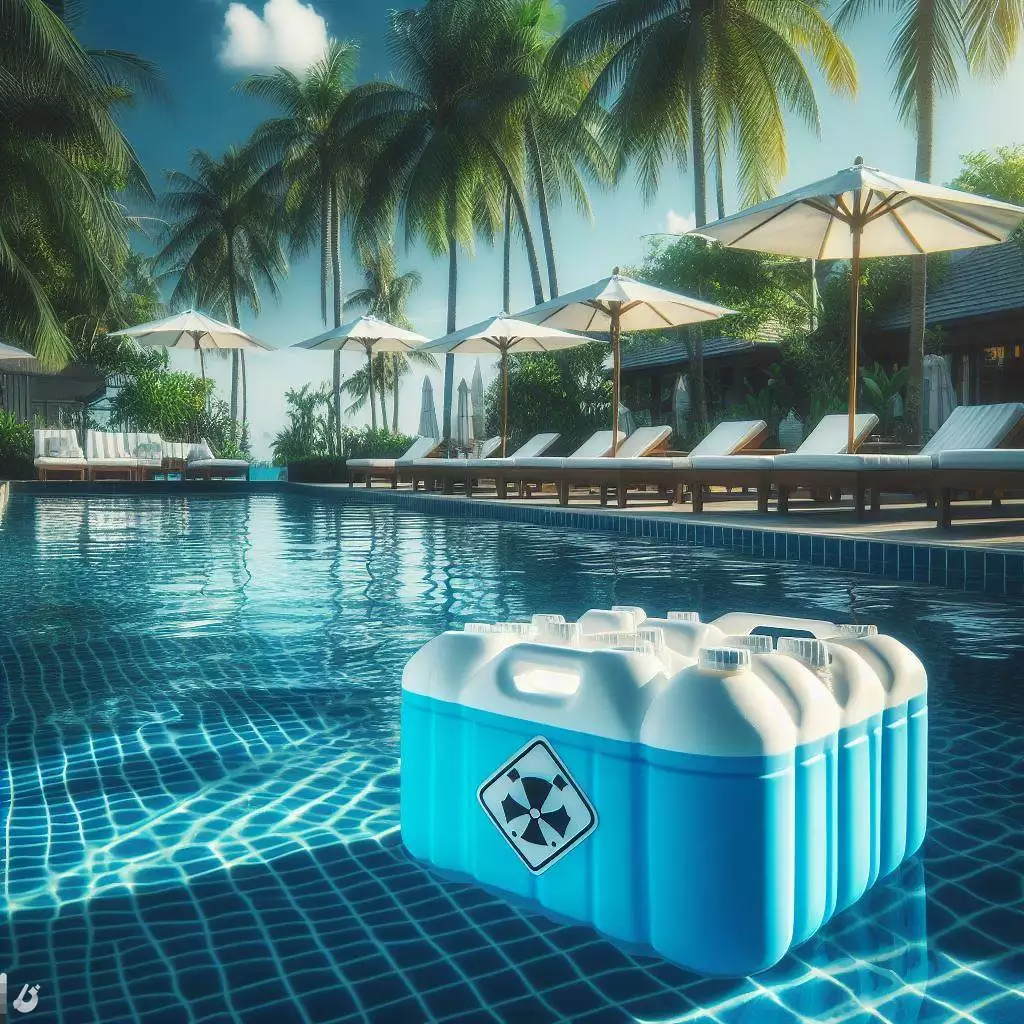Pool chlorine floaters are indispensable accessories in maintaining proper chlorine levels in swimming pools. These devices are designed to gradually release chlorine into the water to ensure adequate disinfection. However, the effectiveness and longevity of pool chlorine floaters depend largely on their chemical corrosion resistance properties. In this article, we will delve into the significance of chemical corrosion resistance in pool chlorine floaters, exploring various factors affecting their performance.

Importance of Chemical Corrosion Resistance
Chemical corrosion resistance is crucial for pool chlorine floaters due to several reasons:
Durability: Floaters with high chemical corrosion resistance exhibit greater durability and longevity, reducing the frequency of replacement and maintenance.
Safety: Corroded floaters may release harmful substances into the pool water, posing health risks to swimmers. Ensuring adequate chemical corrosion resistance helps maintain a safe swimming environment.
Cost-effectiveness: Investing in pool chlorine floaters with robust chemical corrosion resistance proves cost-effective in the long run, as it minimizes replacement and maintenance expenses.
Factors Affecting Chemical Corrosion Resistance
Several factors influence the chemical corrosion resistance of pool chlorine floaters:
Material Composition: The choice of materials significantly impacts the chemical corrosion resistance of floaters. Materials such as PVC, ABS, or high-density polyethylene (HDPE) are known for their excellent resistance to corrosion.
Coatings: Some floaters are coated with specialized materials or treatments to enhance their resistance to chemical corrosion. These coatings create a protective barrier, prolonging the lifespan of the floaters.
Design: The design of pool chlorine floaters plays a crucial role in their exposure to pool chemicals. Floaters with enclosed compartments for chlorine tablets are less susceptible to corrosion compared to those with open designs, as they minimize direct contact with chemicals.
Water Chemistry: Factors such as pH levels, temperature, and chlorine concentration in the pool water can affect the rate of corrosion on floaters. Maintaining proper water chemistry parameters helps mitigate corrosion risks.
Testing and Certification
Manufacturers subject pool chlorine floaters to rigorous testing procedures to evaluate their chemical corrosion resistance. Certification from reputable regulatory bodies, such as the National Sanitation Foundation (NSF), ensures that floaters meet stringent standards for performance and safety.
Maintenance and Care
Proper maintenance and care are essential for preserving the chemical corrosion resistance of pool chlorine floaters:
Regular Cleaning: Clean floaters regularly to remove any buildup of pool chemicals or debris, which can accelerate corrosion.
Inspection: Periodically inspect floaters for signs of corrosion or damage, and replace them if necessary to maintain optimal performance.
Storage: Store floaters in a dry, well-ventilated area away from direct sunlight to prevent degradation of materials.
Conclusion
Chemical corrosion resistance is a critical factor in the performance and longevity of pool chlorine floaters. By understanding the importance of chemical resistance and considering factors such as material composition, design, and maintenance, pool owners can ensure the effectiveness and safety of their pool water treatment systems. Investing in high-quality floaters with robust chemical corrosion resistance properties not only enhances durability and safety but also proves cost-effective in the long run.
